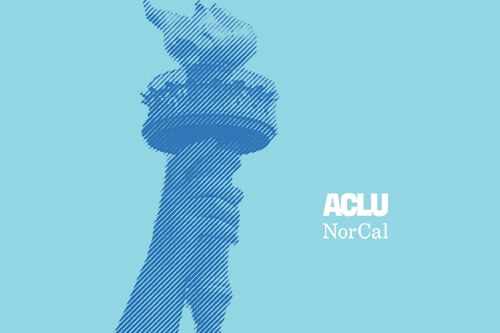City of Sacramento v. Henry (Democracy & Civic Engagement)
Page Media

On July 6, 2021, the ACLU Foundation of Northern California joined the legal team defending the free speech rights of a Sacramento City Councilmember’s representative, Skyler Henry. City officials have sought restraining orders against Henry, alleging that his critical comments of government officials constitute threats to the safety of city staff.
But the city's actions violate free speech protections and are an example of the danger posed to individuals when government officials attempt to punish speech they do not like. The right to speak critically of government officials forms the foundation of the First Amendment.
Henry, the co-host of a podcast focused on political issues, was hired in early June by Councilmember Katie Valenzuela to serve as her representative and help her with constituent services and communications. He had previously worked on matters of housing justice and police accountability around Sacramento.
ACLU NorCal and co-counsel submitted a brief to the Sacramento Superior Court on July 6, 2021, objecting to the city’s petition for the restraining orders and in support of an anti-SLAPP motion filed by co-counsel on June 18, arguing that the city’s legal action against Henry has no merit, was designed to harass and intimidate him, and must be struck down. (An anti-SLAPP motion is a legal procedure permitted by California’s Anti-Strategic Lawsuit Against Public Participation statute. It is a means of defending individuals against frivolous litigation that violates their right to speak out on issues of public significance.)
The city’s petition for the restraining orders cited comments that Henry had made on his podcast regarding U.S. Senator Krysten Sinema, criticizing what he considered to be the disrespectful way in which Sinema had employed a “thumbs down” gesture to vote against a proposed $15 minimum wage: “You should be terrified for the rest of your life. You should never be able to leave your house if that is how you’re going to govern…. And like, to me, the same thing sort of applies with the Mayor and the City Manager of this city [Sacramento]. It’s like, no, no, no, you don’t get to do that. You do not get to make the decisions that you have made over and over and over again to the detriment of everybody who lives here and then go home to your little [expletive] little McMansion in Natomas and like have a good night’s rest. I’m sorry, you don’t get to do that. You do not have a right to that. Absolutely not.”
The petition also cited a handful of political posts on social media that Henry had either allegedly posted, liked, or retweeted, in an attempt to justify why he should be considered a credible workplace threat.
The city filed a petition on June 16, 2021, requesting two types of restraining orders against Henry: a temporary restraining order (TRO) and a workplace violence restraining order. The petition was filed after the Sacramento City Council voted 8 to 1 in support. The same day, a Sacramento Superior Court Judge denied the TRO, ruling that “the evidence presented does not meet the applicable legal standard and there are obvious First Amendment concerns. Moreover, some of the evidence provided by the City actually undercuts its own position that a temporary restraining order is warranted.”
The city’s petition attempts to connect Henry’s comments to Sacramento-area protests, citing news stories regarding two protests that occurred in front of Sacramento City Manager Howard Chan’s house: one in July 2020 protesting Chan’s decision not to fire the police officers who fatally shot the unarmed Stephon Clark, and another in March 2021 protesting police misconduct and Chan’s decision not to open a warming shelter on a night when a major storm killed several unhoused people.
Yet there is no evidence that Henry has ever been to Chan's house, or that he was ever involved in the protests there. Crucially, Henry's comments were made after the protests had occurred, they never called for violence, they were made on issues of public interest, and none of the cited events ever even happened in the workplace.
The city’s petition argues that Henry is a “credible threat” to Chan and his family. They seek to ban Henry from coming within 100 yards of City Hall and Chan’s home or family for, potentially, the next three years. The anti-SLAPP motion, should it prevail in court, would invalidate the remaining workplace restraining order petition.
On July 9, 2021, the Court issued a tentative ruling in Henry's favor: "[N]o evidence was presented to show that Henry incited or participated in the events relating to City Manager Chan's house, incited violence against anyone else, or has any history of engaging in violence himself.... [And t]he City failed to provide context relevant to Henry's podcast comments to demonstrate that a workplace violence restraining order against Henry is justified."
On July 12, 2021, the petition for the Workplace Violence Restraining Order was denied.
Learn More:
ACLU Joins Legal Team Defending Sacramento City Councilmember’s Representative Against Restraining Orders Sought by City Officials (July 7, 2021)
